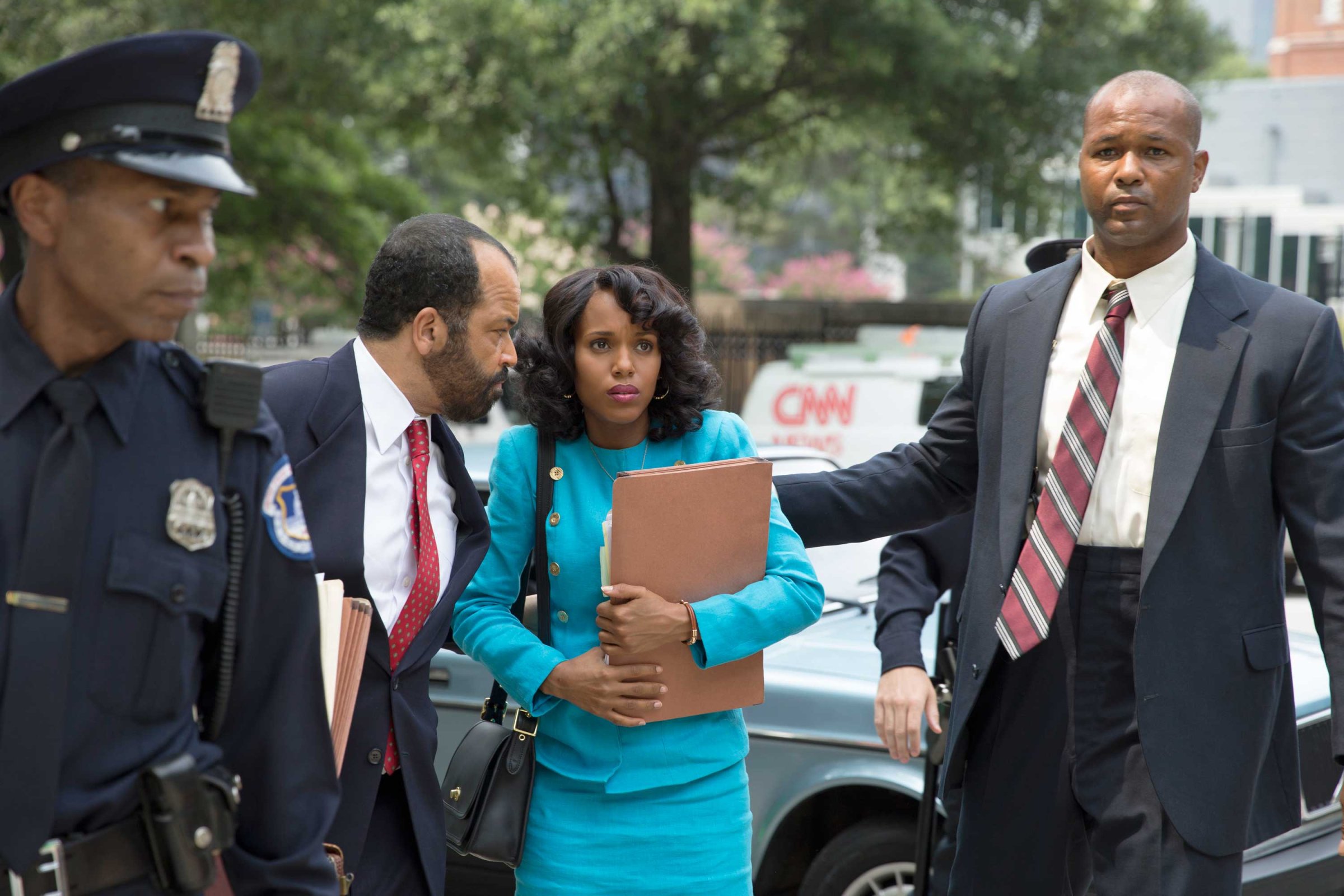
Supreme Court vacancies have become harbingers of great drama. Just ask Merrick Garland, whose recent nomination to the court by President Obama has incited a real-life cliffhanger–one that has more to do with ideas about Obama’s legitimacy than it does with Garland.
The plot of HBO’s new movie Confirmation (April 16) blooms toxically outward in much the same way. In 1991, George H.W. Bush’s nomination of Clarence Thomas–and Anita Hill’s testimony about his alleged sexual harassment of her–gave rise to a saga about gender and race, one that swallowed up the real people at its center.
The nomination was vexed even before it was announced. The movie, which opens with footage of the Senate rejecting Robert Bork in 1987, is haunted by the “borking” of Ronald Reagan’s pick. After that vilification of a judicial nominee on partisan lines, the Thomas pick was a must-win for Republicans, while Democrats were emboldened to scrutinize him. But the Senate Democrats who ran the Thomas hearings were hardly equipped to handle Hill’s explosive claims.
As Hill, Kerry Washington has none of the bravado she brings to Scandal; she’s made her cadence slightly halting and awkward, an effective way to signal that Hill is the opposite of a public person. The impact of Washington’s particular skill–her ability to take umbrage–has been blunted a bit on Scandal, where she’s had to deliver five seasons of speeches constantly rising in emotional intensity. Here, it’s electric.
Or it will be for viewers on Hill’s side. The movie spares no narrative detail that might convince you she was wronged. As played by Wendell Pierce, Thomas is a void, a man whose calm exterior and apparent disengagement seem to hide deep reservoirs of rage. At the center of this circus, Greg Kinnear delivers a lacerating performance as then Senator Joseph Biden. He plays the hearings’ ringmaster as feckless and motivated by pure politics. He’s unable to grasp the gravity of Hill’s accusations–the all-male, all-white membership of the Judiciary Committee must be persuaded by female members of Congress to hear her out–or how making them would change her life. “If I wasn’t the chair of this thing, I’d be your lawyer myself,” Biden tells Hill, all hollow charm and bonhomie.
With its time frame compressed to the period immediately surrounding the hearings, Confirmation feels constrained. We’re trapped, as both Hill and Thomas were, inside a political labyrinth. Thomas’ decision to ignore the Senate vote about his future seems like the right one. Why engage with a system designed to humiliate? Thomas feels wronged too. Confirmation shares with FX’s The People v. O.J. Simpson a probing curiosity about an era that is just starting to fall into history, and an unwillingness to flatly choose heroes and villains. The movie treats Hill’s claims as legitimate but is also sympathetic to Thomas’ suggestion that he’s being punished for his race. This case, like the Simpson trial, was one in which race and gender collided in the ugliest possible way.
The only part of the otherwise sophisticated Confirmation that rings false is its closing chyron, which indicates that Hill’s case emboldened victims of harassment to speak out and factored into 1992’s congressional “year of the woman,” in which female candidates won more seats than ever before. Both are true, but given the level of distrust with which the public treats accusers in high-profile cases and the fact that narrow year-of-the-woman-style victories still make news, it’s clear those gains hardly resolved the struggle.
Hill may have motivated change, but she was also a living, breathing confirmation that women’s stories were too often dismissed. Onscreen, Hill tells the Senate that she only wants its members to “fully consider this information … and take this seriously.” Decades later, a medium newly inspired by complex stories of social justice has accepted her challenge.
More Must-Reads From TIME
- The 100 Most Influential People of 2024
- The Revolution of Yulia Navalnaya
- 6 Compliments That Land Every Time
- Stop Looking for Your Forever Home
- If You're Dating Right Now , You're Brave: Column
- The AI That Could Heal a Divided Internet
- Fallout Is a Brilliant Model for the Future of Video Game Adaptations
- Want Weekly Recs on What to Watch, Read, and More? Sign Up for Worth Your Time
Contact us at letters@time.com